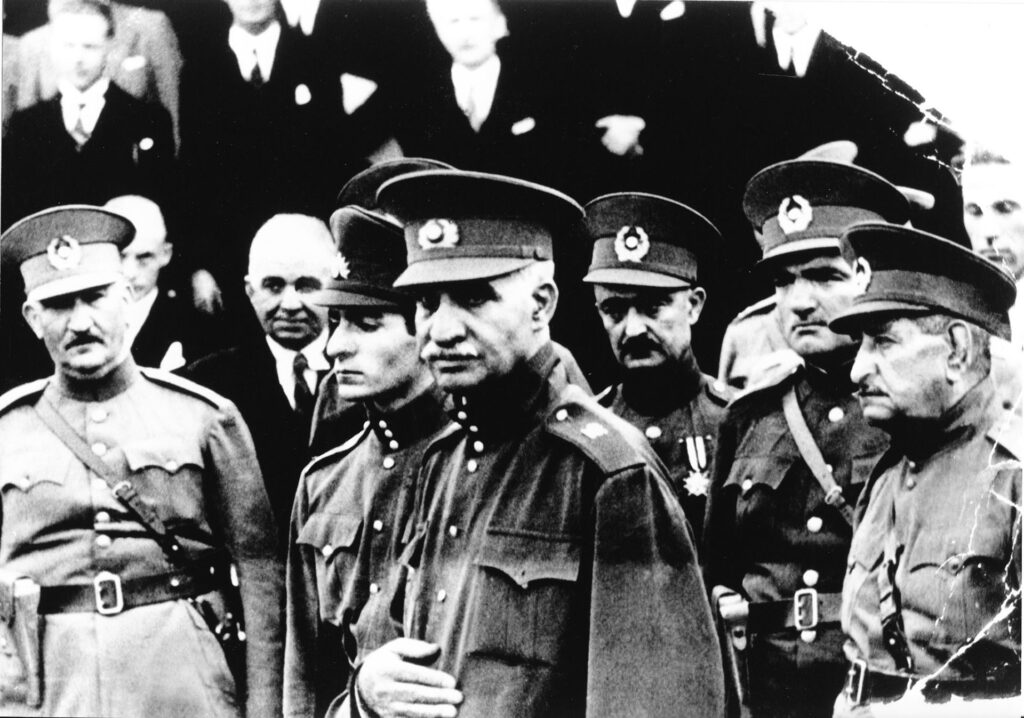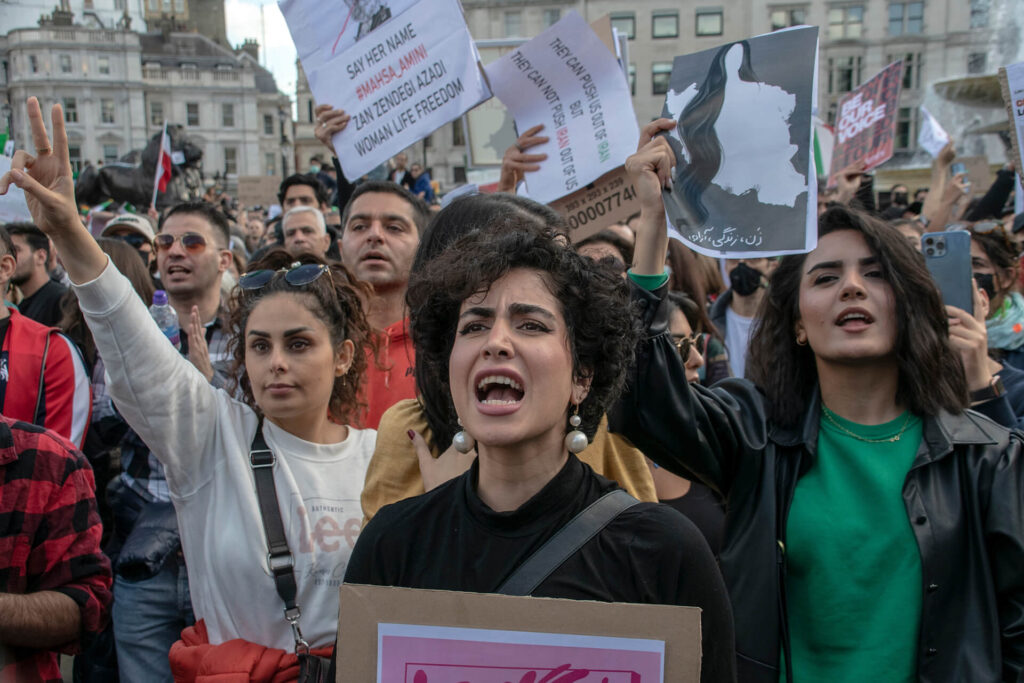In my travels to Iran, I have discovered that Iran is not what the US and its mainstream media portray. True, Iran is under the mullahs but they do not necessarily obey the Supreme Leader Ali Khamenei as the US and its media claim.
Iran has multiple political parties. They come together to form factions. Two of them are most important. The reformist (Islah-talab) and fundamentalist (Usool-gar) vie for political power. Since 1989, the reformists have controlled the government. After the Iran-Iraq War ended, reformists were largely dominant. In 2021, President Ebrahim Raisi unseated the reformists, winning a landslide victory at the polls. Even before Raisi, Mahmoud Ahmadinejad was president for eight years from 2005 to 2013. Like Raisi, he is conservative but, unlike Raisi, he did not have the same control over the government.
The rich in Iran support reformists. Like their US counterparts, rich Iranians exercise immense control over the country’s economy. Unlike the narrative in Western media, Iranian oligarchs have more power than the supreme leader, presidents or mullahs. Many Iranians call these oligarchs Iran’s mafia.
The US consistently ignores the complexities of Iran. For Washington, Tehran is a convenient whipping boy. American policymakers berate Iran for human rights violations but ignore Saudi Arabia’s arbitrary executions, torture and even potential involvement in the 9/11 attacks.
Similarly, the US supports the apartheid state of Israel. The Jewish state was formed after pushing out Palestinians from their ancestral lands, causing nakba — the Palestinian catastrophe in which millions of people fled from their homes. Even today, Israel oppresses and persecutes the native Palestinians. Over two million live in Gaza, which is an open-air prison. In the latest war, Israel has ordered over a million to leave their homes as its tanks and troops move into northern Gaza. Israeli air strikes have killed thousands already.
Iran’s reformists look up to the US
Iran’s reformists have followed the path of Akbar Rafsanjani, who was president from 1989 to 1997. His focus was on the economy. Rafsanjani said, “Germany and Japan have the strongest economy these days because they were banned from having a military force after World War.” He suggested that Iran should follow Germany and Japan with no military power and depend on the US for protection. He advocated total dependence on the US and its Western allies.
Like Rafsanjani, the reformists look to the West, especially the US. They openly criticize closer relations with China, Russia and neighboring countries to avoid offending the US. They opposed Iran joining the Shanghai Cooperation Organization (SCO) and the grouping of Brazil, Russia, India, China, and South Africa (BRICS).
Reformists ignore the fact that the US pressured Germany and Japan to participate in Syria and Ukraine. Thanks to the US, both economies are now in shambles. Among the reformists are many Western-educated individuals, such as Hassan Rouhani and Mohammad Javad Zarif, the former president and foreign minister respectively. Like Rafsanjani, they look up to the West for answers. In particular, they pushed the country to emulate the US capitalist system. Reformists have privatized major national industries, imports, exports and banks, benefiting themselves, and their relatives, and friends. These have emerged as Iran’s new oligarchs in a system of crony capitalism.
Now, the oligarchs get their free or cheap raw materials from the government and sell their finished products at dollar prices. They manipulate profits and enjoy special privileges. Oligarchs evade taxes, cheat on profits, bypass regulations, and deposit their huge funds overseas. They own villas in Europe, Canada, and the US. Among them have emerged numerous billionaires. One of them charged with embezzlement made headlines in Canada.
In Tehran, I saw many residential high-rise towers, nearly all of them empty. The rich owned six million empty units as investment properties because they aimed to make money from rising property prices. At the same time, over six million families were searching for residence.
I was shocked when visiting malls in Tehran. I noticed that nearly all the products on sale were foreign-made. Oligarchs make money off imports. That is why they oppose domestic production and pursue better relations with the US. In Iran, the rich have followed their US counterparts. They keep the poor busy with alcohol, drugs, social media, pop culture and soap operas.
In Iran, people are poor but educated. Literacy is now 98%. Women have progressed remarkably. Most university students, physicians and academic professors are now women. However, in the country’s poor economy, women are disadvantaged against men who are legally held responsible for their family finances. Jobs are scarce for everyone, especially women, and this causes discontent.
Reformists paint a misleading picture of the US. I met people who genuinely think everyone in the US enjoys ample free time, a good life, and sufficient income. Iranians believe that every American owns a nice car and a house. Most young Iranians dream of living in the US. When I tell them that at least 11% of Americans live in poverty and 60% of them “live pay-check-to-paycheck,” they are shocked. Culturally, the young Iranian mind is often colonized and too many Iranians live in fantasy.
Iran’s reformists have made many mistakes
The reformists claim their most notable accomplishment to be the 2015 Iran-US Nuclear Agreement, AKA Joint Comprehensive Plan of Action (JCPOA). Iran fully complied with the JCPOA despite heavy losses but the US, UK and France threw this agreement in the bin. Under pressure from the Israeli lobby in 2018, Donald Trump abandoned it when he was president.
In hindsight, the JCPOA was a mistake. Zarif and his associates signed off on the agreement without reading it closely or understanding it thoroughly. Reformists used their influence in the majlis, the Iranian Parliament to get MPS to approve the JCPOA in less than 30 minutes without any discussion. In particular, they crossed some redlines set by Khamenei, Iran’s supposedly all-powerful supreme leader.
President Joe Biden has been trying to revive the JCPOA with little success because the Iranians no longer trust the US. After assassinating Iran’s top general Qassim Soleimani, it is doubtful if Iran would have normal relations with the US in the near future. Many Iranians think of the US as their worst enemy but their worst enemies are Iranian oligarchs, who really are rich reformists.
Raisi is a fundamentalist. Since 2021, fundamentalists have been in power. They inherited an economy in shambles with large debts and an annual inflation rate of around 50%. So far, they have been busy restoring the economy and cleaning up the system. Note that the inflation rate has fallen to below 40%.
Unlike reformists, Raisi wants to be even-handed towards both the West and the East. He has improved relations with the neighboring nations. In particular, Iran has joined the SCO and is supposed to join the BRICS in January 2024. Raisi has also negotiated with the US to release some of Iran’s funds. Iran’s increases in oil exports imply that the US may have eased sanctions on Iran.
Raisi works long hours and is busy meeting with citizens or diplomats nearly every day. In his short time, he has accomplished notably. Unlike reformists, Raisi does not publicize his successes and improve his public relations. Therefore, many Iranians still blame him for a slow economy.
Raisi’s greatest enemies are the rich reformists. These oligarchs are determined to make Raisi fail. Reportedly, reformists have supported protests over women’s rights to increase their influence. As usual, the Western media is acting as cheerleaders for the reformists.
Today, Iran has the world’s second-largest gas reserves and fourth-largest oil reserves. In the pursuit of cheap energy, the US and the UK want access to those resources. This is not new. In the early 1950s, the UK controlled Iran’s oil production. When Mosaddegh asked for a greater share of oil revenue, the UK and the US launched a coup. Both countries still want a subservient Iran, which they can exploit for cheap energy.
Note that Iran is still traumatized by the 1953 coup. Then, the MI6 and the CIA were able to bribe, manipulate and coerce unscrupulous Iranians to oust Mosaddegh. That coup remains the postwar original sin of the US in the Middle East. Washington sowed the wind then and the world is reaping the whirlwind today. After the Islamic Revolution, the US and its Western allies have been unable to access Iran’s resources cheaply. Thus, the US continues using tremendous pressure, threats and sanctions against the country.
Raisi’s big challenge lies not only in taking on the US but also in taming Iran’s oligarchs.
The views expressed in this article are the author’s own and do not necessarily reflect Fair Observer’s editorial policy.
Support Fair Observer
We rely on your support for our independence, diversity and quality.
For more than 10 years, Fair Observer has been free, fair and independent. No billionaire owns us, no advertisers control us. We are a reader-supported nonprofit. Unlike many other publications, we keep our content free for readers regardless of where they live or whether they can afford to pay. We have no paywalls and no ads.
In the post-truth era of fake news, echo chambers and filter bubbles, we publish a plurality of perspectives from around the world. Anyone can publish with us, but everyone goes through a rigorous editorial process. So, you get fact-checked, well-reasoned content instead of noise.
We publish 2,500+ voices from 90+ countries. We also conduct education and training programs
on subjects ranging from digital media and journalism to writing and critical thinking. This
doesn’t come cheap. Servers, editors, trainers and web developers cost
money.
Please consider supporting us on a regular basis as a recurring donor or a
sustaining member.
Will you support FO’s journalism?
We rely on your support for our independence, diversity and quality.










Comment